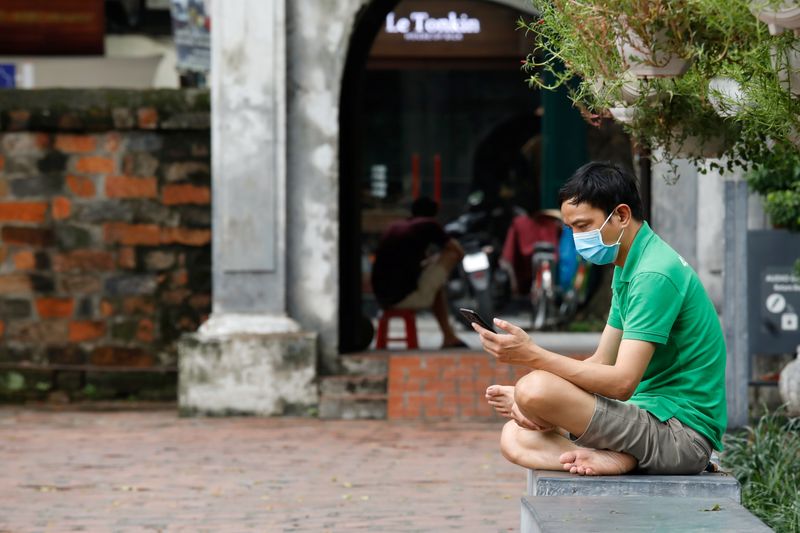HANOI (Reuters) – The risk of COVID-19 spreading widely in Vietnam is “very high”, its prime minister said on Friday, after a new outbreak in the central city of Danang late last month ended a three month run of no new domestic cases.
Aggressive contact-tracing, targeted testing and strict quarantining had helped Vietnam halt an earlier contagion, but it is now racing to control infections in Danang and beyond after a new outbreak was detected there on July 25.
“The risk of community infection is very high, requiring more determination, solidarity and responsibility from the political system in order to take stronger and more determined measures over the next two weeks,” Prime Minister Nguyen Xuan Phuc said, according a government statement.
Vietnam reported 37 new coronavirus infections on Friday, raising the number of cases in the country to 784, with 10 deaths.
Danang has confirmed more than 200 cases since the virus reappeared there. Authorities have said the situation in Danang was “under control” and the outbreak would likely peak in the next 10 days.
Broad restrictions are in place in the popular resort town of 1.1 million and a sports stadium has been converted into a 1,000-bed field hospital, to be used if hospitals are overwhelmed, or to isolate potential cases.
Phuc said fast and accurate testing would be key to preventing the spread, as Hanoi authorities started re-testing tens of thousands of people who recently returned to the capital from Danang, using the swab-based testing method.
Bluezone, a government mobile application designed to trace infected people, has been downloaded 8.5 million times, Vietnam’s health minister said, according to the statement.
Of the 298 cases confirmed over the last two weeks, 21 were detected via the app, the statement said.
(Reporting by James Pearson and Phuong Nguyen; Editing by Martin Petty)























